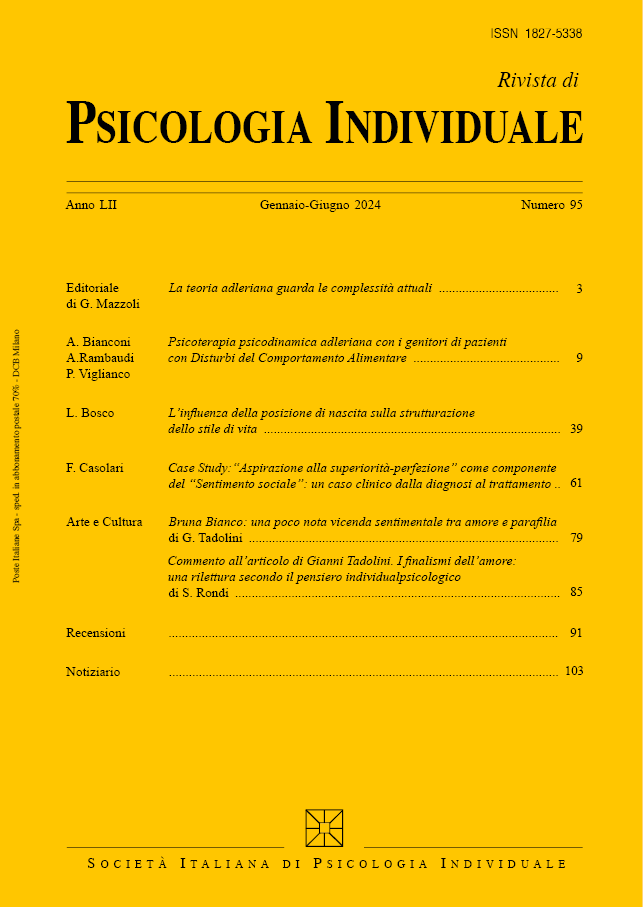Psychodrama with the mentally handicapped: a tool for the analysis and correction of lifestyle
Keywords:
aggression, institutions for the disabled, compensation, psychodiagnosis, psychotherapy, feelings of inferiority, selection of patients for psychodramaAbstract
In an institution for severely mentally disabled individuals, a group of subjects aged between 3 and 7 years old was selected and asked to act out scripts (scenes from everyday life, fictional and real subjects) proposed by the patients. The group was first divided into two subgroups, separating the lively subjects from those with less initiative. The experiment continued for six months with the subgroups separated and for another four months after they were reunited. The performances, which lasted 50 minutes, took place weekly. It was observed that, within the group, the superiority/inferiority dynamic was always present, but defensive mechanisms of abstention also developed. As for the results, only in one case was a clear therapeutic effect observed; in all cases, however, adaptation to the environment and mood improved. Aggression and lifestyle, on the other hand, were not modified by the interpretation given to the patients, but by their own perceptions






